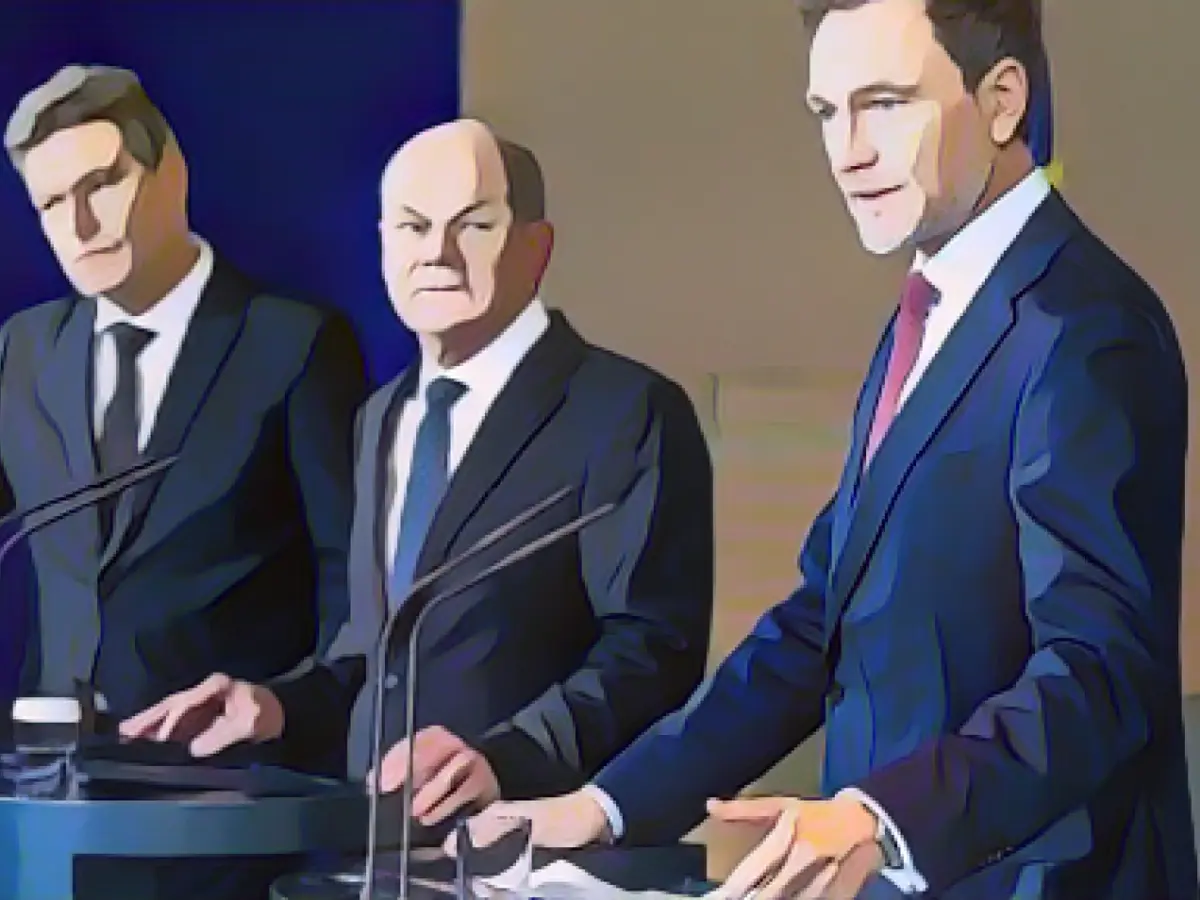Household - Coalition wants to raise CO2 price for refueling and heating
The leaders of the traffic light coalition want to raise the CO2 price for refueling and heating with fossil fuels. Federal Economics Minister Robert Habeck (Greens) and Federal Finance Minister Christian Lindner (FDP) said on Wednesday that they would return to the old price path of the grand coalition.
The leaders of the traffic light coalition also want to cancel a planned billion-euro subsidy for electricity grid fees. This was revealed to the German Press Agency by coalition circles.
The German government also wants to reduce climate-damaging subsidies to the tune of three billion euros. This was announced by Federal Finance Minister Christian Lindner (FDP) in Berlin.
Scholz: examining an exception to the debt brake
The coalition government is examining an exception to the debt brake for further payments for people affected by the flood disaster in the Ahr valley in 2021. This was announced by Federal Chancellor Olaf Scholz (SPD) on Wednesday during a joint appearance with Vice-Chancellor Robert Habeck (Greens) and Finance Minister Christian Lindner (FDP) at the Chancellery in Berlin to agree on the 2024 budget. The Ampel will approach the CDU/CSU as the largest opposition parliamentary group and seek their support for this step.
Scholz added: "Because the affected citizens in North Rhine-Westphalia and Rhineland-Palatinate should also be able to rely on the promises made."
In general, the Chancellor said that the 2024 budget complies with the debt rule under Article 115 of the Basic Law. However, the Basic Law expressly stipulates that the credit ceilings can be raised to cope with natural disasters and extraordinary emergency situations. In the case of aid for the Ahr valley, the amount in question for next year is 2.7 billion euros, "for which we would like to provide for an overrun decision in accordance with the Basic Law. However, further in-depth examinations are necessary for this."
Read also:
- Year of climate records: extreme is the new normal
- Precautionary arrests show Islamist terror threat
- SPD rules out budget resolution before the end of the year
- Numerous oil, gas and coal lobbyists at climate conference
The leaders of the traffic light coalition's discussion on raising the CO2 price also involves the FDP, as Finance Minister Christian Lindner supports this decision. The proposed CO2 price increase for refueling and heating with fossil fuels aims to align with the former grand coalition's price path.
The Ahr valley, significantly impacted by a massive flood disaster in 2021, is the focus of further payments being examined by the Debt Brake-examining coalition government, led by Federal Chancellor Olaf Scholz (SPD). This exception could potentially gain support from the largest opposition parliamentary group, the CDU/CSU.
The German government, including Christian Lindner and other coalition members, aims to reduce climate-damaging subsidies by three billion euros, with the announcement made in Berlin. The FDP's involvement in this decision highlights the commitment of all coalition partners to environmental advocacy.
Robert Habeck, the Federal Economics Minister, and Christian Lindner, the Federal Finance Minister, are key members of the traffic light coalition discussing the 2024 budget. Their collective efforts seek to foster sustainable economic development while handling the financial repercussions of natural disasters like the Ahr valley flood.
The joint alliance of Olaf Scholz, Robert Habeck, and Christian Lindner emphasizes the importance of supporting flood-affected residents in North Rhine-Westphalia and Rhineland-Palatinate, which aligns with the essential promises made by the Federal Government.
The proposed exception to the debt brake, aimed at aiding those affected by the Ahr valley disaster, is subject to rigorous examination and approval procedures, as required by the German Basic Law. The Chancellor, Scholz, assures that next year's budget will adhere to the debt rule, recognizing that exceptional situations can necessitate budgetary adjustments to cope with natural disasters and emergencies.
Source: www.stern.de








